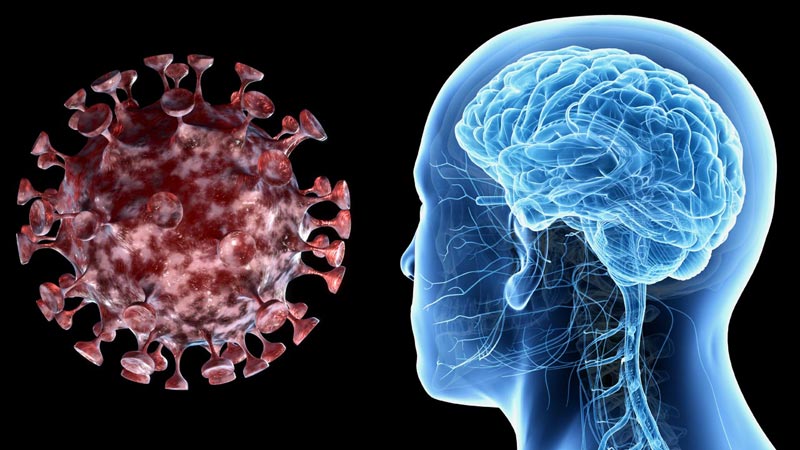A study published stated that coronavirus may enter the brain through the nose. This may help explain some of the neurological symptoms observed in COVID-19 patients and inform diagnosis and measures to prevent infection.
The research, published in the journal Nature Neuroscience, noted that SARS-CoV-2 not only affects the respiratory tract but also impacts the central nervous system (CNS), resulting in neurological symptoms such as loss of smell, taste, headache, fatigue, and nausea.
Although recent research has described the presence of viral RNA in the brain and cerebrospinal fluid, it remains unclear where the virus enters and how it is distributed within the brain.

The researchers from Charite-Universitatsmedizin Berlin, Germany examined the nasopharynx — the upper part of the throat that connects to the nasal cavity — a likely first site of viral infection and replication, and the brains of 33 patients – 22 males and 11 females — who died with COVID-19.
The researchers explained that they found the presence of SARS-CoV-2 RNA, the genetic material of the virus, and protein in the brain and nasopharynx, adding intact virus particles were also detected in the nasopharynx.
The highest levels of viral RNA were found in the olfactory mucous membrane, they said.
As per the researchers, the disease duration was inversely correlated with the amount of detectable virus, indicating that higher SARS-CoV-2 RNA levels were found in cases with shorter disease duration.
















